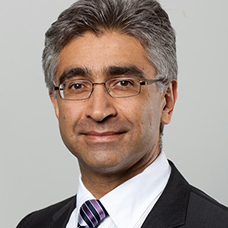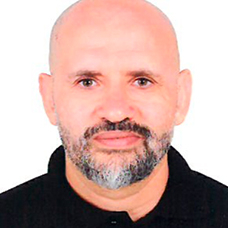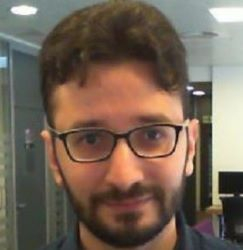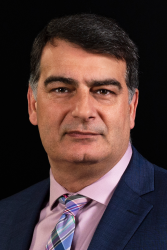
Prof. Gene Tsudik
University of California,
Irvine, CA,
USA
BIOGRAPHY
Gene Tsudik is a Distinguished Professor of Computer Science at the University of California, Irvine (UCI). He obtained his PhD in Computer Science from USC. Before coming to UCI in 2000, he was at the IBM Zurich Research Laboratory (1991-1996) and USC/ISI (1996-2000). His research interests include numerous topics in security, privacy and applied cryptography. Gene Tsudik was a Fulbright Scholar and a Fulbright Specialist (thrice). He is a fellow of ACM, IEEE, AAAS, and IFIP, as well a foreign member of Academia Europaea. From 2009 to 2015 he served as Editor-in-Chief of ACM TOPS. He was the recipient of the 2017 ACM SIGSAC Outstanding Contribution Award, the 2020 IFIP Jean-Claude Laprie Award, and the 2023 ACM SIGSAC Outstanding Innovation Award. His magnum opus is the first ever rhyming crypto-poem published as a refereed paper. Gene Tsudik is allergic to machine learning, blockchains, cryptocurrencies, and differential privacy. He has no social media presence.
Day 1: Building Trusted and Privacy-Aware IoT Devices
As many types of IoT devices worm their way into numerous settings and many aspects of our daily lives, awareness of their presence and functionality becomes a source of major concern. Hidden IoT devices can snoop (via sensing) on nearby unsuspecting users, and impact the environment where unaware users are present, via actuation. This prompts, respectively, privacy and security/safety issues. The dangers of hidden IoT devices have been recognized and prior research suggested some means of mitigation, mostly based on traffic analysis or using specialized hardware to uncover devices. While such approaches are partially effective, there is currently no comprehensive approach to IoT device transparency. Prompted in part by recent privacy regulations (GDPR and CCPA), this work motivates and constructs a privacy-agile Root-of-Trust architecture for IoT devices, called PAISA: Privacy-Agile IoT Sensing and Actuation. It guarantees timely and secure announcements of nearby IoT devices’ presence and their capabilities. PAISA has two components: one on the IoT device that guarantees periodic announcements of its presence even if all device software is compromised, and the other on the user device, which captures and processes announcements. PAISA requires no hardware modifications; it uses a popular off-the-shelf Trusted Execution Environment (TEE) – ARM TrustZone. To demonstrate its viability, PAISA is instantiated as an open-source prototype which includes: an IoT device that makes announcements via IEEE 802.11 WiFi beacons and an Android smartphone-based app that captures and processes announcements. We also discuss security and performance of PAISA and its prototype.

Prof. Dr.-Ing. Ahmad-Reza Sadeghi
Technical University of Darmstadt,
Germany
BIOGRAPHY
Prof. Ahmad-Reza Sadeghi is a distinguished Full Professor of Computer Science at the Technical University of Darmstadt, Germany, where he also leads the System Security Lab. His academic journey includes earning a Ph.D. in Computer Science with a specialization in Cryptography from the University of Saarland, Germany. Before his academic career, Prof. Sadeghi contributed significantly to the Research and Development sector of the Telecommunications industry, notably with Ericsson.
Since 2012, Prof. Sadeghi has fostered a lasting collaboration with Intel, participating in several Collaborative Research Centers addressing diverse topics such as Secure Computing in Mobile and Embedded Systems, Autonomous and Resilient Systems, and Private AI. In 2019, he expanded his lab by establishing the Open Lab for Sustainable Security and Safety (OpenS3 Lab) in partnership with Huawei.
His research focus spans various domains, including Trustworthy Computing Platforms, Hardware-assisted Security, IoT Security and Privacy, Applied Cryptography, and Trustworthy AI. Prof. Sadeghi has played pivotal roles in numerous national and international research and development projects, emphasizing the design and implementation of secure and trustworthy technologies.
He has served as General or Program Chair and Program Committee member of major Information Security and Privacy and Design and Automation conferences and events. Prof. Sadeghi has notably contributed as the Editor-In-Chief of IEEE Security and Privacy Magazine and served on editorial boards for respected publications such as ACM TISSEC, IEEE TCAD, ACM Books, ACM DIOT, ACM TODAES, and ACM DTRAP.
Prof. Sadeghi's exceptional contributions to the field have earned him prestigious awards. In 2008, he was awarded the esteemed German "Karl Heinz Beckurts" prize for his influential research in Trusted and Trustworthy Computing technology, acknowledging its impactful transfer to industrial practice. In 2010, his group received the German IT Security Competition Award. In 2018, he was honored with the ACM SIGSAC Outstanding Contributions Award, recognizing his dedicated research, education, and management leadership in the security community, with pioneering contributions in content protection, mobile security, and hardware-assisted security. He is a member of the German National Academy of Science and Engineering.
The year 2021 brought further recognition with the Intel Academic Leadership Award at USENIX Security, acknowledging Prof. Sadeghi's influential research in information and computer security, particularly in hardware-assisted security. In 2022, he was awarded the prestigious European Research Council (ERC) Advanced Grant, solidifying his position as a leading figure in advancing cutting-edge research in computer science and security.
Day 1: The Survival of the Fittest: On Securing the Integrity of Emerging AI Realities
In the current global landscape, we are witnessing a phenomenon resembling an Artificial Intelligence (AI) pandemic. The ongoing advancements in Deep Neural Networks continuously boost performance and scalability, enabling novel applications. However, these merits carry significant security and privacy risks, potentially leading to severe consequences. Undoubtedly, AI has emerged as a goldmine for security and privacy research realms. This talk aims to touch upon selected facets of the expansive AI universe, beginning with examining the benefits and security challenges inherent in Federated Learning. This innovative paradigm fosters collaborative Deep Neural Network training across distributed entities without sharing sensitive data. We drive our insights from practical use cases through ongoing collaborations with industry partners and governmental organizations in this domain. Expanding our focus to generative AI, we explore two distinct themes - AI-generated text and Deepfakes - illustrating the dual role of AI as both protector and disruptor of reality. With a particular emphasis on ChatGPT, we highlight the limitations of existing ChatGPT detectors and present recent advancements that significantly elevate the state-of-the-art in this field. Finally, we discuss the potential applications of ethical deepfakes and our ongoing work on real-time deepfakes. We hope our presentation contributes to the scientific dialogue surrounding the multifaceted security challenges and opportunities in the ever-evolving AI field.

Mr. Mounir Kamal
National CyberSecurity Agency,
Qatar
BIOGRAPHY
Mounir Kamal is a distinguished cybersecurity professional with a career spanning over two decades in various roles of escalating responsibility and complexity. Currently serving as a Senior Cybersecurity Consultant at the National Cyber Security Agency in Qatar, Mounir has demonstrated exceptional skills in managing national-level cybersecurity projects, ensuring alignment with national cybersecurity strategies. Mounir's expertise encompasses a broad spectrum of cybersecurity domains, including Cyber Risk Management, Cyber Threat Intelligence, Critical Infrastructure Protection, OT/ICS Security, Active Cyber Defense, and Enterprise Security Architecture. He is particularly adept in threat and risk assessments for critical infrastructures, hacking investigations, and SOC design and management.
His educational background is equally impressive, holding an M.Sc. in Information Security from Royal Holloway, UK. Mounir has also earned many certifications, including CISSP, ISO 31000:2018 Lead Risk Manager, Lead Crisis Manager, ISA/IEC62443 Security Expert, and GIAC Cyber Threat Intelligence. Mounir's career highlights include his tenure as Incident Handling & Digital Forensics Manager at the National CERT, where he led the national cybersecurity labs and his role as Regional Information Security Officer for Alcatel-Lucent in the Middle East. His contributions to cybersecurity extend to education, where he has been instrumental in developing and conducting cybersecurity courses, and to public speaking, with numerous presentations at major conferences and publications in respected for a. His ability to translate complex cybersecurity topics into clear, impactful business insights and his strong leadership in managing national-level response teams makes Mounir a respected figure in the cybersecurity community.
Day 1: 6-Views: National Identification and Criticality Scoring Framework

Dr. Mohamed Omar Al Kadri
Associate Professor in Data and Cyber Security,
University of Doha for Science and Technology
BIOGRAPHY
Dr. Alkadri is an Associate Professor in Data and Cyber Security at the University of Doha for Science and Technology, with 10+ years of experience in cyber security and networking. He completed his PhD in Informatics at King's College London, in 2017. Prior to this, he earned his MSc (with distinction) in Networking and Data Communications from Kingston University London and a B.Eng. in Computer Engineering from the International University for Science and Technology. His research is at the forefront of integrating artificial intelligence into cybersecurity. With interests focusing on applying machine learning in multiple domains, such as healthcare, autonomous vehicles and wireless networks security. He is also involved in anomaly detection within IoT networks and enhancing CAN security protocols.
Day 1: The Cybersecurity Frontier: Innovating for a Safer Tomorrow
Artificial Intelligence is emerging as a pivotal component in numerous aspects of our lives, showcasing a wide range of applications across various fields. Among its myriad applications, one of the most consequential is in the realm of cybersecurity. In this talk, we will shed light on the remarkable capabilities of AI in enhancing cybersecurity measures, considering diverse real-world scenarios such as autonomous vehicles, healthcare, and the Internet of Things (IoT). Join us as we explore how AI safeguards our digital future.”

Eng. Samer Shbeeb
Palo Alto Networks, Qatar
CCIE, CISSP, CISA, CEH, CHFI
BIOGRAPHY
Samer is a technology enthusiast, with 29+ years of diversified experience in the fields of Networking, Networking Security, Cyber security, Business Continuity, DR, Cloud security/deployments, Data Center architecture/operations/design and other related fields. Samer is currently working as a virtual CISO – Emerging Markets with Paloalto Networks, prior to joining Paloalto networks, Samerworked for Industry leaders such as NCR, Cisco Systems and PriceWaterhouseCoopers (PWC)
Day 1: Harnessing AI to Improve Cyber-Resilience
With Cyber security there is never just one Issue that needs to be addressed, new technologies and innovation could be used to both attack and/or defend. In this presentation we will explore how AI and ML can help address the threat landscape by leveraging the same tools as the attackers, strengthening organizations’ overall security posture.

Prof Christos Papadopoulos
Chair of Excellence in Global Research Leadership
University of Memphis, USA
BIOGRAPHY
Christos Papadopoulos is a Professor and Sparks Family Chair of Excellence in Global Research Leadership in the Computer Science Department at University of Memphis. His interests include network and automotive cybersecurity, future Internet architectures and applications, and large-scale Internet measurements. Between 2028-20 he was a program manager at the Department of Homeland Security (DHS) Science and Technology Directorate (S&T), managing projects on Cyberphysical Systems Security. He is a senior IEEE member, participated in research projects totaling over $20M from DARPA, DHS, DOD and the NSF, and published over 70 conference and journal papers.
Day 2: Digital Forensics Challenges in Modern Vehicles
Abstract: Vehicle electronics have come a long way in the last ten years, transforming the vehicle from a mostly mechanical system to a largely electronic one. As a result, modern vehicles hold a vast amount of digital information that can be discovered through digital forensics. Such information can be used to solve crimes, analyze vehicle operation to find problems, and obtain information about the drivers and their driving habits including personal information such as home and work locations. In this presentation we will explore how digital forensics needs to evolve to keep up with this new environment.

